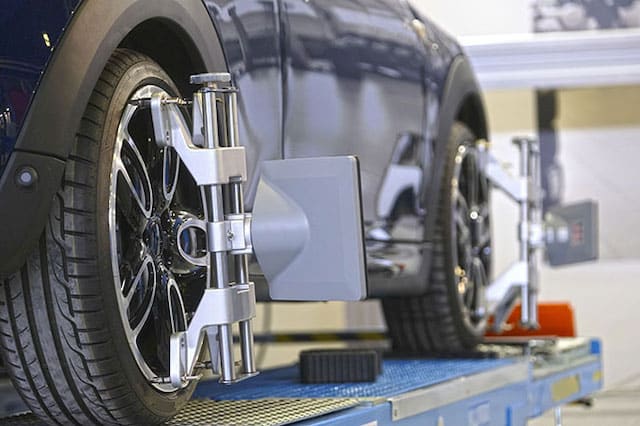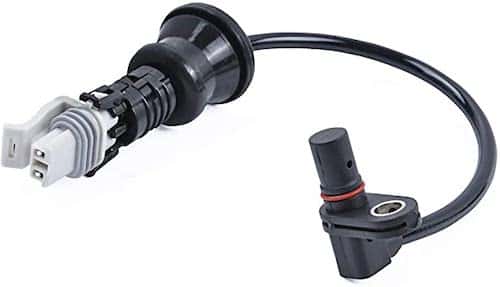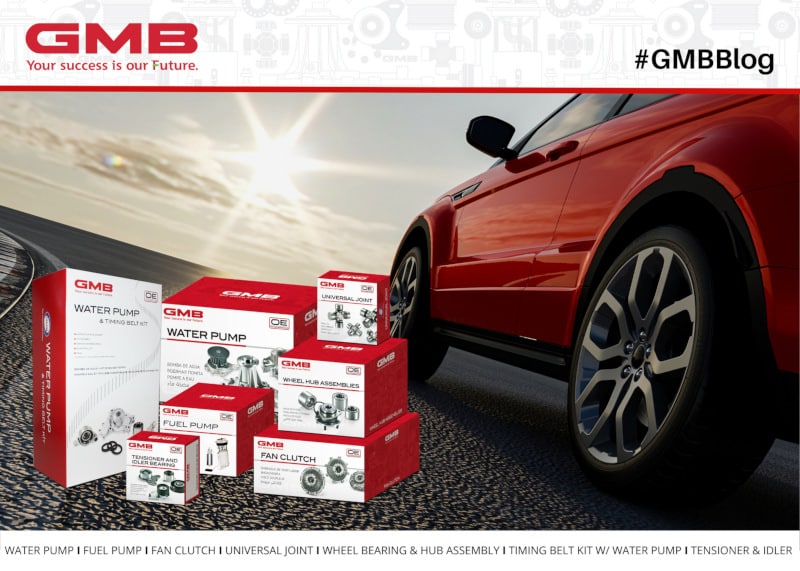What Damage Can Potholes Cause To Your Vehicle
You’re driving down the street when suddenly, without warning, your car is jarred by a hard impact. You hit something, but it wasn’t another car or person. It was a pothole.
A lot of drivers would brush it off as no big deal. It’s only a pothole, right? Well, it can be a big deal. Potholes can damage your vehicle in many different ways. Let’s talk about the most common ways:
1. Wheel Bearing Damage
Did you know that a wheel bearing can fail after hitting a pothole? This video explains it pretty well:
When one of your tires goes into a pothole, the wheel bearing gets a jolt. That can cause a small indentation to one of the races. Over time, that small indentation causes the bearing grease to have turbulence over that area. The area where the turbulence happens gets less lubrication. This leads to the bearing developing a brinelling mark in the race. The mark can get bigger over time, which leads to wheel bearing failure.
The first sign of this is wheel bearing noise, which may occur days, weeks, or months after the pothole impact. If you have a sneaking suspicion that a pothole damaged one of the wheel bearings, you can inspect it for leaks. There are two ways that hitting a pothole can cause the grease to leak out:
- When a wheel bearing takes a hit from a pothole, the seal can become dislodged.
- Internal damage to the bearing can create excessive heat, which breaks down the grease, making it easier for the grease to leak out.
2. Wheel And Tire Damage
Even a small pothole can cause damage to your wheels and tires. Hitting the wrong part of the wheel or tire can cause the wheel to bend or crack. This usually happens with alloy wheels, which are more likely to have low profile tires installed.
Driving over a pothole can also damage your tires. For example, it can puncture a hole in the tire. The tire sidewall and belts can get damaged, too.
3. Suspension Damage
A pothole can wreak havoc on your vehicle’s suspension system. Here are some of the most common suspension system components that can get impacted by a pothole:
- Ball joints: When a ball joint hits a pothole, the ball or socket can become deformed. This causes uneven tire wear and makes steering less precise.
- Control arm bushings: Hitting a pothole can cause a control arm bushing to tear or crack. The more you drive after hitting a pothole, the quicker the control arm bushing wears out. When this happens, you have uneven tire wear. Your car won’t steer precisely, and may pull to one side when braking.
- Sway bar link: This part stabilizes the body of the car and reduces sway or lean. When it hits a pothole, the ball stud that’s on the end of the bar that connects to the control arm can get damaged. This can cause rattling or clunking noises.
- Shocks and struts: If you hit a pothole hard enough, it can do serious damage to the shock absorbers, springs, and strut assemblies. When your car hits a pothole at higher speeds, it may bend or “blow out” your shocks or struts.
4. Wheel Alignment Issues

When your car is out of alignment, it can affect everything from cornering to straight acceleration. A pothole impact can cause the steering and/or suspension components to shift out of place. This knocks the wheels out of alignment.
5. Steering Issues
When your steering system components are knocked out of place from a pothole, you’ll experience some steering issues, such as:
- Steering wheel vibration when driving at higher speeds
- Difficulty turning the steering wheel
- Jerky or bumpy turning
- The vehicle pulling to one side when driving straight
6. Wheel Speed Sensor Damage

The wheel speed sensor monitors how fast the wheels are spinning. The engine control module receives that information and uses it to keep the ABS system stable and functional. If a pothole hit damages one of these sensors, it can cause a few issues.
Usually, the check ABS light will come on. When the light is on, the ABS system may not function at all. This puts the driver at risk in low traction situations.
7. Axle Damage
When your car hits a pothole at high speeds, the axle shaft can get bent or damaged. This is seen most often in vehicles with live axles.
Talking To Your Customers About Potholes
Potholes are such common nuisances on the roads these days. Sometimes they’re unavoidable. It’s important to talk to your customers about what damage potholes can cause. This article has a few tips on talking to your customers about potholes. To sum it up:
- Ask the customers if they’ve hit any potholes lately
- Ask the customers if they’ve noticed any potholes nearby
- Warn your customers about any potholes near the shop
- Encourage your customers have their vehicle checked after hitting a pothole
It’s especially important to talk to your customers about potholes during wintertime. Potholes are more hidden during winter, so the chances of hitting one are much higher.
MORE CONTENT
Stay current!
Sign up here to get the latest news
and updates on all things GMB.
Sign Up To Receive GMB News & Updates!

